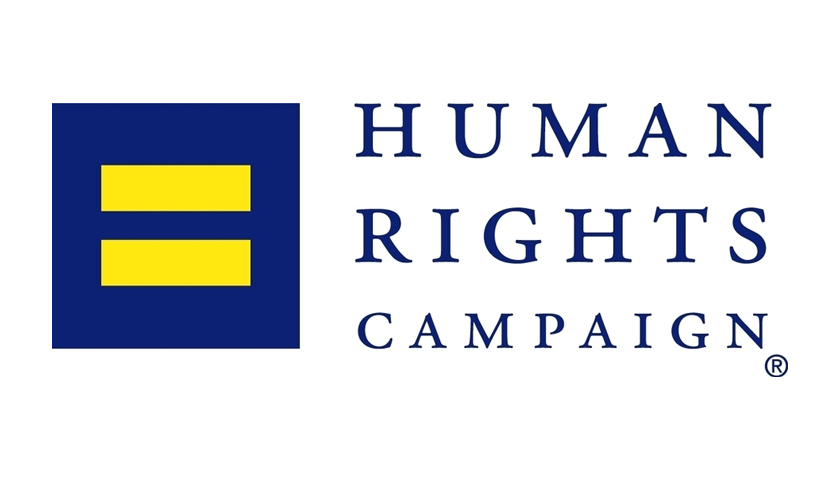The Human Rights Campaign Foundation, the educational arm of the nation’s largest lesbian, gay, bisexual, transgender and queer (LGBTQ+) civil rights organization in the country, released new data from a national survey that outlines LGBTQ+ people’s experiences at their jobs and the reality of diversity, equity and inclusion (DEI) in the workplace. Many LGBTQ+ workers remain closeted to human resources at their job, but through the “Equality Rising: LGBTQ+ Workers and the Road Ahead” study, we highlight ways employers can ensure the workplace reflects the diversity of our current societal landscape and how the lack of DEI efforts can impact workers’ ability to advance in their careers.
“Even in the face of anti-LGBTQ+ opposition, we have seen inclusive corporate policies increase and more LGBTQ+ workers come out to their peers. But persisting bias means companies must not take their foot off the gas as LGBTQ+ workers continue to stay closeted beyond their immediate teams and face discrimination on the job,” said RaShawn “Shawnie” Hawkins, SHRM-CP, Senior Director for the Workplace Equality Program. “Our survey results note the progress seen in the workplace, in particular for Black and Brown LGBTQ+ workers in coming out more, but DEI efforts require more than unbiased employment policies – employers must commit to a more equitable work culture.”
Despite corporate policies and practices that increasingly embrace LGBTQ+ inclusion, many LGBTQ+ Americans are living in a state of emergency – with over 500 anti-LGBTQ+ bills introduced in state legislatures in the year 2023 alone. The barriers built from harmful legislation have strained interpersonal workplace connections, including non-work conversations or outings among coworkers.
The HRC Foundation survey found that:
-
Almost 9 in 10 (84 percent) of LGBTQ+ workers are out to at least one person in their current job–substantially higher than in 2018, when only 54 percent of LGBTQ+ workers were out to at least one person at work. However, LGBTQ+ workers, on average, are half as likely to be out to their Human Resources department, than to coworkers on their team–suggesting a potential lack of trust, or lack of opportunity to report.
-
Fifty-one percent of LGBTQ+ workers have withheld their identity at least one job in their lifetime due to privacy concerns. And forty percent have done so due to fear of being stigmatized or facing violence at work
-
Many (non-LGBTQ+) people think employers are showing up, but LGBTQ+ people still need more. Company values must translate into action, or risk losing out on talent
-
While only 35 percent of non-LGBTQ+ workers believe their employer does too little for transgender people, 57 percent of LGBTQ+ workers and 61 percent of transgender and non-binary workers feel this way.
-
Over a quarter of LGBTQ+ workers (26 percent), and over a third (36 percent) of transgender and non-binary workers, have searched for a different job as a result of working in an environment that was not very accepting of LGBTQ+ people. And over a quarter (28 percent) of LGBTQ+ workers, including over a third (37 percent) of transgender and non-binary workers, have actually left a job for the same reason.
These distressing survey results highlight the challenges facing LGBTQ+ workers, particularly BIPOC (Black, Indigenous, and people of color), who have experienced ongoing efforts by anti-LGBTQ lawmakers to undermine their rights. However, BIPOC LGBTQ+ people are out more than ever before and the discriminatory gap is closing with 86 percent of BIPOC LGBTQ+ people out to at least one person at work and 69 percent out to their direct supervisor.
This report comes at a time when LGBTQ+ people are facing a patchwork of laws and policies. In 2020, the U.S. Supreme Court historically ruled on Bostock v. Clayton County, which cemented the legal interpretation that discrimination on the basis of sexual orientation and gender identity is a form of sex discrimination prohibited by Title VII of the Civil Rights Act of 1964. However, landmark decisions, like the Bostock ruling, don’t automatically shift culture — and with an increase in anti-LGBTQ+ state laws and rhetoric, many LGBTQ+ people remain susceptible to unfair work practices. For example, the research showed 24 percent of LGBTQ+ workers, and 32 percent of transgender and non-binary workers, have been ever passed over for a promotion due to their LGBTQ+ identity.
The full report, Equality Rising: LGBTQ+ Workers and the Road Ahead, can be found here.

